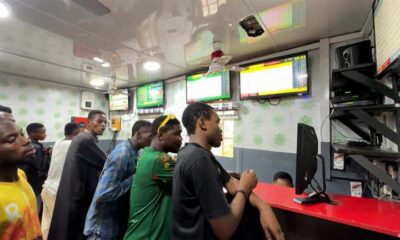News
FG Palliative, A ‘Mere Tokenism’ For Effect Of Subsidy Removal, Says NLC
NLC President Joe Ajaero says the distribution of food palliatives is…

The Nigeria Labour Congress (NLC) has faulted the Federal Government’s palliatives following the removal of subsidy on petroleum.
While the Federal Government had months back removed subsidy on the commodity, it gave food palliatives to state governments for onward distribution to Nigerians. It also gave N5bn to them.
VerseNews reports that hours after declaring a two-day nationwide strike owing to the impacts of fuel subsidy removal, the NLC President Joe Ajaero says the distribution of food palliatives is inadequate to combat the effects of the government’s move.
“If you share that N5bn or even the five trucks of rice or grain, many people may not get one or half cup of rice,” he said on Channels Television’s Politics Today on Friday.
“If you share the N5bn, many people, probably within the working class or the poor of the poor, may not get N1,500. Now, is that the palliative?”
The labour chief described the palliatives as “mere tokenism”, maintaining they cannot cushion the impacts of the subsidy removal policy.
“When you do it, you reduce us to mere tokenism – maybe give us N10,000 for three months and leave people to die. That is not the issue, “Ajaero added.
“We have to sit down and look at some measures that would cushion the effects or that would substitute the suffering of Nigerians. So, by the time you say you are giving state governors N5bn each, what does that translate to if they share it?”
He, however, said, that if the money budgeted for the palliatives was put into the public transport system, the people would be better for it.
“For every day a worker moves from his house to the office and comes back with a reduced transportation rate, he may save N1,000 daily,” he argued.
“If he tries that for 28 days or even 20 days, he may be saving about N20,000 on transportation alone. That’s a policy. That would help even the farmer who moves his goods and services from one point to the other.”























You must be logged in to post a comment Login